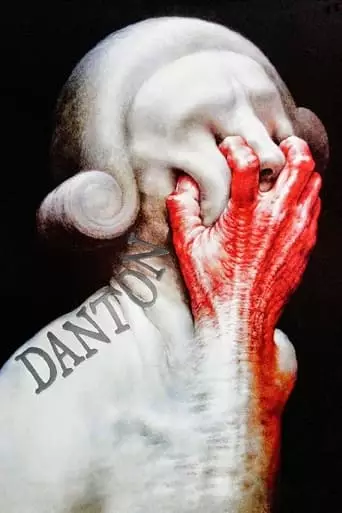
Danton (1983) Watch Online Free
Danton and Robespierre were close friends and fought together in the French Revolution, but by 1793 Robespierre was France’s ruler, determined to wipe out opposition with a series of mass executions that became known as the Reign of Terror. Danton, well known as a spokesman of the people, had been living in relative solitude in the French countryside, but he returned to Paris to challenge Robespierre’s violent rule and call for the people to demand their rights. Robespierre, however, could not accept such a challenge, even from a friend and colleague, and he blocked out a plan for the capture and execution of Danton and his allies.
Danton (1983), directed by Andrzej Wajda, is a historical drama set during the French Revolution, focusing on the conflict between two revolutionary leaders, Georges Danton and Maximilien Robespierre. The film explores the internal political struggle during the Reign of Terror, a time when the French Revolution’s ideals of liberty, equality, and fraternity became overshadowed by fear, violence, and political corruption.
The story centers on Georges Danton, played by Gérard Depardieu, a passionate revolutionary who is disillusioned by the increasing violence and the growing power of Robespierre’s Committee of Public Safety. Danton calls for an end to the bloodshed, advocating for peace and reconciliation. However, his public opposition to Robespierre’s radical policies puts him at odds with the revolutionary establishment. Robespierre, portrayed by Wojciech Pszoniak, is depicted as a self-righteous and increasingly paranoid leader who justifies the violence as necessary to protect the revolution. The tension between these two figures ultimately leads to Danton’s arrest and execution.
The film delves into the complexities of political idealism and the dangers of unchecked power. At its core, Danton is a reflection on the corruption of revolutionary ideals. Danton’s character embodies the tension between the noble goals of the revolution and the brutal methods used to achieve them. Robespierre, on the other hand, represents the authoritarian turn that the revolution took, where the ends justify the means, and dissent is silenced with extreme measures.
The film also examines the psychological toll of power and the personal sacrifices made by those in positions of leadership. Danton’s tragic fate is a result of his refusal to compromise his principles, even as he faces overwhelming opposition from those who are willing to do whatever it takes to maintain control. The contrast between Danton’s humanist ideals and Robespierre’s increasingly ruthless actions highlights the perils of ideological extremism and the erosion of democratic values in the pursuit of political power.
Another significant theme is the role of the people in the revolution. The film shows the masses as both a source of power and a tool manipulated by those in control. The revolution is not just about the leaders but about the people who are swept along by the tide of history, often without understanding the full consequences of their actions.
Danton stands as a powerful commentary on the nature of political revolutions and the moral compromises that often accompany them. Wajda, a renowned Polish filmmaker, was deeply influenced by his own country’s history of political upheaval, particularly the Solidarity movement. The film resonates with anyone familiar with the struggles for freedom and justice, as it reflects on the human cost of revolutionary change. Its themes of political betrayal, corruption, and martyrdom continue to be relevant in modern discussions about the dangers of authoritarianism and the importance of maintaining democratic values.
After watching Danton, viewers are likely to feel a sense of reflection and contemplation. The film’s portrayal of the tragic consequences of revolutionary fervor and political betrayal can leave one questioning the true cost of change. It may evoke feelings of sorrow for Danton’s fate, admiration for his unwavering principles, and a deep understanding of the complexities of political power. The film’s somber tone and tragic ending can stir a sense of melancholy, but it also encourages critical thinking about the nature of political revolutions and the fine line between justice and tyranny.
Ultimately, Danton is a film that lingers long after the credits roll, urging viewers to reflect on the lessons of history and the moral dilemmas faced by those who seek to change the world
